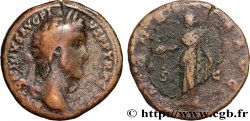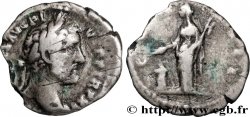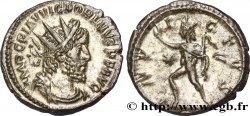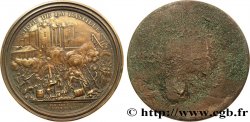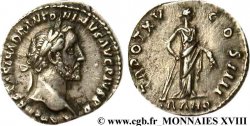v24_0367 - ANTONINUS PIUS Sesterce, (GB, Æ 32)
MONNAIES 24 (2005)
Starting price : 350.00 €
Estimate : 550.00 €
Realised price : 365.00 €
Number of bids : 2
Maximum bid : 368.00 €
Starting price : 350.00 €
Estimate : 550.00 €
Realised price : 365.00 €
Number of bids : 2
Maximum bid : 368.00 €
Type : Sesterce, (GB, Æ 32)
Date: 155-156
Mint name / Town : Roma
Metal : bronze
Diameter : 32 mm
Orientation dies : 12 h.
Weight : 23,94 g.
Coments on the condition:
Très beau portrait. Revers de très beau style. Exemplaire sur un flan large et complet des deux côtés avec une patine marron foncé
Catalogue references :
Obverse
Obverse legend : ANTONINVS AVG - PIVS P P IMP II.
Obverse description : Tête laurée d'Antonin le Pieux à droite (O*).
Obverse translation : "Antoninus Augustus Pius Pater Patriæ Imperator iterum", (Antonin auguste pieux père de la patrie revêtu de la deuxième acclamation impériale).
Reverse
Reverse legend : TR POT XIX - COS IIII.
Reverse description : Fides (la Fidélité) drapée debout à gauche, tenant une enseigne militaire dans chaque main.
Reverse translation : "Tribunicia Potestate undevicesimum Consul quartum", (Revêtu de la dix-neuvième puissance tribunitienne consul pour la quatrième fois).
Commentary
Poids léger. Représentation inhabituelle de la Fidélité qui deviendra très courante au siècle suivant.
Lightweight. An unusual representation of Fidelity that would become very common in the following century.
Lightweight. An unusual representation of Fidelity that would become very common in the following century.








 Report a mistake
Report a mistake Print the page
Print the page Share my selection
Share my selection Ask a question
Ask a question Consign / sell
Consign / sell
 Full data
Full data
